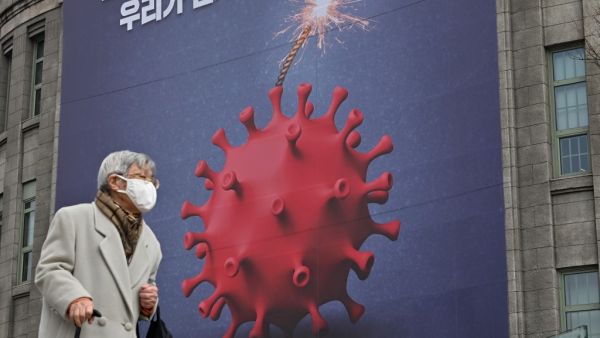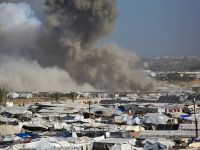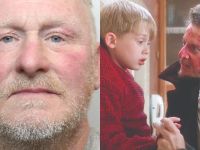South Korea is the latest country to record its first cases of the new highly-infections UK variant of coronavirus brought in by three travellers from London.
Officials have vowed to speed up the roll-out of a nation-wide coronavirus vaccination programme after detecting the new strain.
The variant - thought to be more transmissible than others currently circulating - was found in three people who had entered South Korea from London on December 22, the Korea Disease Control and Prevention Agency (KDCA) said on Monday.
South Korea reports cases of COVID variant - and says they came from UKhttps://t.co/rDlroANK33 pic.twitter.com/5uPMU9oN9c
— ??HR Solutions?? (@The_HR_Team) December 28, 2020
Britain first sounded the alarm about the variant VUI-202012/01 earlier this month after an explosion of cases were linked to the strain.
Top virologists in the US since admitted the strain - which was first seen in a patient in September - could have emerged there and went undetected because America's genomics scheme is 'sporadic'.
Australia, Denmark, Italy, Iceland Spain, Sweden and the Netherlands are among the countries who have reported cases of the variant.
Since then, Other Covid strains with near-identical genetic make up have been reported in South Africa and Brazil.
South Africa detected the strain 501.V2, which is understood to have mutated further than the first variant VUI-202012/01.
The country has seen a spike in cases driven by the 'more infectious' variant.
South Africa reported more than 14,000 cases on Wednesday, its highest total of the pandemic so far, while deaths topped 400 for the first time since August 5.
Eight countries have banned travellers from South Africa to try and contain the spread of the new strain, including the UK, Germany, Saudi Arabia and Turkey.
But the new variant, dubbed 501.V2, has already been detected in two locations in Britain in contacts of people who had recently been to South Africa.
COVID outbreak in South Korea possibly linked to apartment ventilation system https://t.co/ZqpihQ9axU pic.twitter.com/eiDada6R3w
— New York Post (@nypost) December 24, 2020
On Christmas Eve, another new variant called P681H was detected in Nigeria.
Scientists say it is different to the ones found recently in the UK and South Africa but they do not currently believe the new strain is more infectious than previous strains.
Overall, South Korea reported 808 new cases as of midnight Sunday, the lowest since a record 1,241 infections were logged on Friday.
Authorities cautioned that the drop may be due to less testing done over the weekend and the Christmas holiday, and said on Sunday they would be extending social distancing measures until early January.
South Korea's government has faced mounting domestic criticism over its vaccine procurement and rollout plans.
The plans call call for the first vaccinations to begin in the first quarter of next year months after places such as the United States and the European Union.
Negative views of the vaccine plans was one of the leading reasons that drove President Moon Jae-in's disapproval rating to an all-time high of nearly 60 per cent, pollster Realmeter said on Monday.
Regulators will shorten the period required to approve vaccines and treatments from and average of 180 days to as little as 40 days, the Ministry of Food and Drug Safety announced on Sunday.
An additional approval process for the distribution and sale of vaccines, which usually takes several months, will be shortened to around 20 days, the ministry said.
Medical workers and elderly residents will begin receiving the vaccinations in February, and plans to vaccinate the broader public is accelerating, presidential chief of staff Noh Young-min said Sunday.
He said: 'The government is doing all it can to advance this time frame and is also making progress.'
South Korea has said it plans to buy enough doses to eventually vaccinate 46 million people, or more than 85 per cent of its population.
Noh said authorities expected South Korea's population to reach a level of herd immunity through the vaccines as fast or faster than many other countries.
This article has been adapted from its original source.








